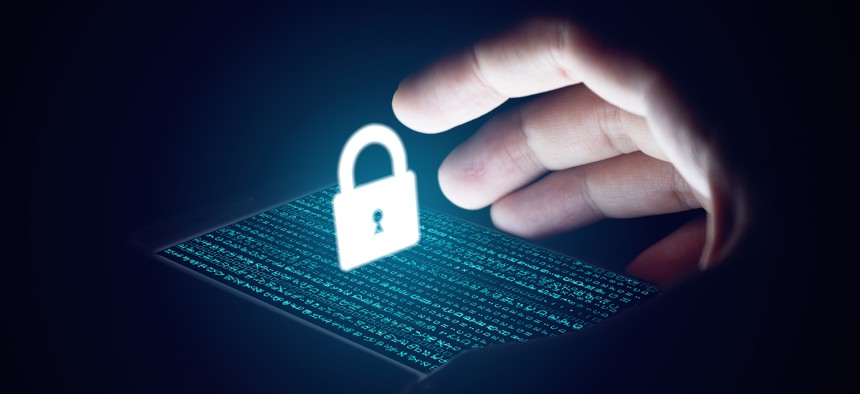Critical Update: Securing Elections And Diversifying The Cyber Workforce

wutzkohphoto/Shutterstock.com
In a special episode, Nextgov speaks with DHS cyber lead Jeanette Manfra about the government’s cyber priorities and challenges.
The Homeland Security Department is preparing to surge the cybersecurity services it provides to industry, offering not just cyber threat information and security hygiene scans but actual cyber sensors and other tools.
The department is also studying how it can secure government tech systems against digital threats in their supply chains and protecting government emails against phishing attacks—all while helping state and local governments secure their election systems in advance of the 2018 midterms.
Homeland Security’s cyber lead Jeanette Manfra spoke with Nextgov about these priorities on the sidelines of the RSA Cybersecurity conference in San Francisco last week.
One big message: Manfra’s confident every vote can be counted and correctly tallied in the 2018 contests, but she can’t ensure there won’t be some digital mischief that undermines early results, exit polls and other Election Night fanfare.
That means Americans might have to be patient on Election Night and trust that the checks and fail-safes that ensure a correct vote, such as paper trails, will win the day, Manfra said.
“There’s a very disciplined, complex process for ensuring the vote tallies are correct, but that doesn’t happen on Election Night,” she said.
Manfra also spoke about the experience of being a woman in the male-dominated cybersecurity sector and what Homeland Security is doing to ensure the government’s cyber workforce becomes more diverse.
“I really believe it’s an enormous risk to not have the skilled professionals that we need,” she said, “and I believe there is tremendous potential in diverse populations.”
You can listen to the full episode below, or download to your device from the Apple store or Google Play.








